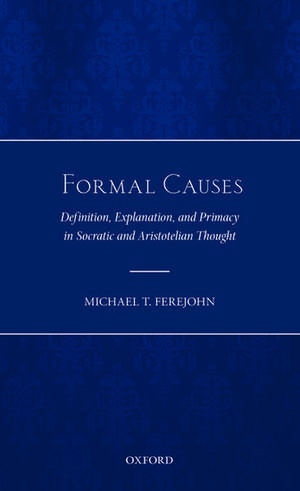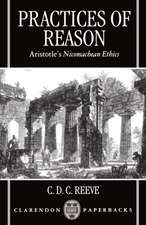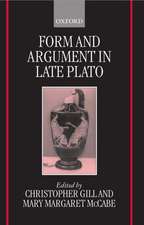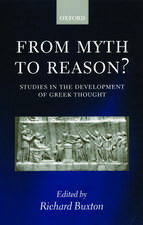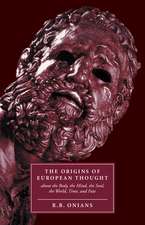Formal Causes: Definition, Explanation, and Primacy in Socratic and Aristotelian Thought
Autor Michael T. Ferejohnen Limba Engleză Hardback – 28 noi 2013
Preț: 483.99 lei
Preț vechi: 670.80 lei
-28% Nou
Puncte Express: 726
Preț estimativ în valută:
92.62€ • 96.11$ • 77.42£
92.62€ • 96.11$ • 77.42£
Carte tipărită la comandă
Livrare economică 04-10 martie
Preluare comenzi: 021 569.72.76
Specificații
ISBN-13: 9780199695300
ISBN-10: 019969530X
Pagini: 224
Dimensiuni: 145 x 221 x 20 mm
Greutate: 0.4 kg
Editura: OUP OXFORD
Colecția OUP Oxford
Locul publicării:Oxford, United Kingdom
ISBN-10: 019969530X
Pagini: 224
Dimensiuni: 145 x 221 x 20 mm
Greutate: 0.4 kg
Editura: OUP OXFORD
Colecția OUP Oxford
Locul publicării:Oxford, United Kingdom
Recenzii
Ferejohn's newest book is a thorough and powerfully argued interpretation of Aristotle's formal cause. It is a book that deserves to be discussed and taken seriously, while also being provocative and engaging. ... For Aristotle scholars the book is a welcome addition to the literature on the formal cause. ... The book is also accessible to students and could therefore be excellent study material for a course on scientific explanation and the Posterior Analytics.
Ferejohn has devoted much of his career to shedding much needed light on Aristotleâs epistemology and philosophy of science; Formal Causes continues the project ... Ferejohn successfully leads us to ask new questions and the interpretative strategies he works through will surely be included among the main options.
Every reader of Formal Causes will reap rich rewards from grappling with this deeply informed and carefully argued work
Ferejohn has devoted much of his career to shedding much needed light on Aristotleâs epistemology and philosophy of science; Formal Causes continues the project ... Ferejohn successfully leads us to ask new questions and the interpretative strategies he works through will surely be included among the main options.
Every reader of Formal Causes will reap rich rewards from grappling with this deeply informed and carefully argued work
Notă biografică
Michael Ferejohn is Professor of Philosophy and Classical Studies at Duke University. He has held visiting positions at the University of Pittsburgh and Tufts University, and a Mellon Faculty Fellowship at Havard University. He is the author of The Origins of Aristotelian Science (Yale University Press, 1991) as well as numerous journal articles on Plato and Aristotle.
